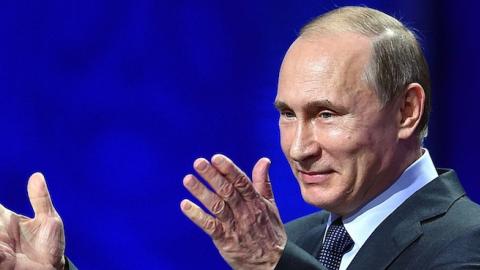The rush of internationalist Republicans to the Clinton campaign is one of the most striking developments of this unusual year. Anti-Semitic Trump trolls, many apparently Putin-bots, are spewing the usual distortion, hate and bile about how this is some kind of Jewish plot, revealing the lack of patriotism of American Jews. Brent Scowcroft wasn’t Jewish and wasn’t a neocon the last time I checked. And for every GOP figure who has publicly endorsed Clinton, many more are quietly steering clear of the GOP ticket.
This is only partly about Trump. What appears to be happening is that Vladimir Putin’s threat to liberty and decency is bringing Americans together: just as the internationalist consensus of the Cold War saw liberals and conservatives, Democrats and Republicans, move toward common ground. Putin is no Stalin—he is neither as evil or as powerful—more Saruman than Sauron. Nevertheless, what power he can muster is devoted to dark causes: mass murder in Syria, aggression in Ukraine, kleptocracy and skullduggery wherever he can.
This seems to be having a sobering effect on an important segment of the foreign policy world. Some liberal idealists are rethinking their certainty that the arc of history is inevitably bringing about the triumph of American principles all on its own. And some conservatives—neocons and others—are taking another look at the ways in which a strong foreign policy needs a strong grounding in a healthy American society that works for the middle class. This is all good; both liberal and conservative foreign policy wonks were leaning much too far forward on their skis during the 25 years since the Cold War, and both groups have endorsed some bad causes and bad ideas.
With both China and Russia intensifying their challenges against liberal order, and with Iran continuing to advance a destabilizing agenda in the Middle East, sober thinking and bipartisan cooperation will be at a premium over the next four years. Over time, more Americans are going to see the nature of Putin’s power system and its fundamental opposition to the freedoms that Americans on both the left and the right care about.
Unity isn’t always something a nation achieves on its own. Often it takes outside threats. America is deeply divided in 2016; the efforts of our enemies to exploit those divisions to weaken our cohesion may end by helping us rediscover the perspectives and regain the balance that made American policy during the Cold War so much more effective than it has been since.


















